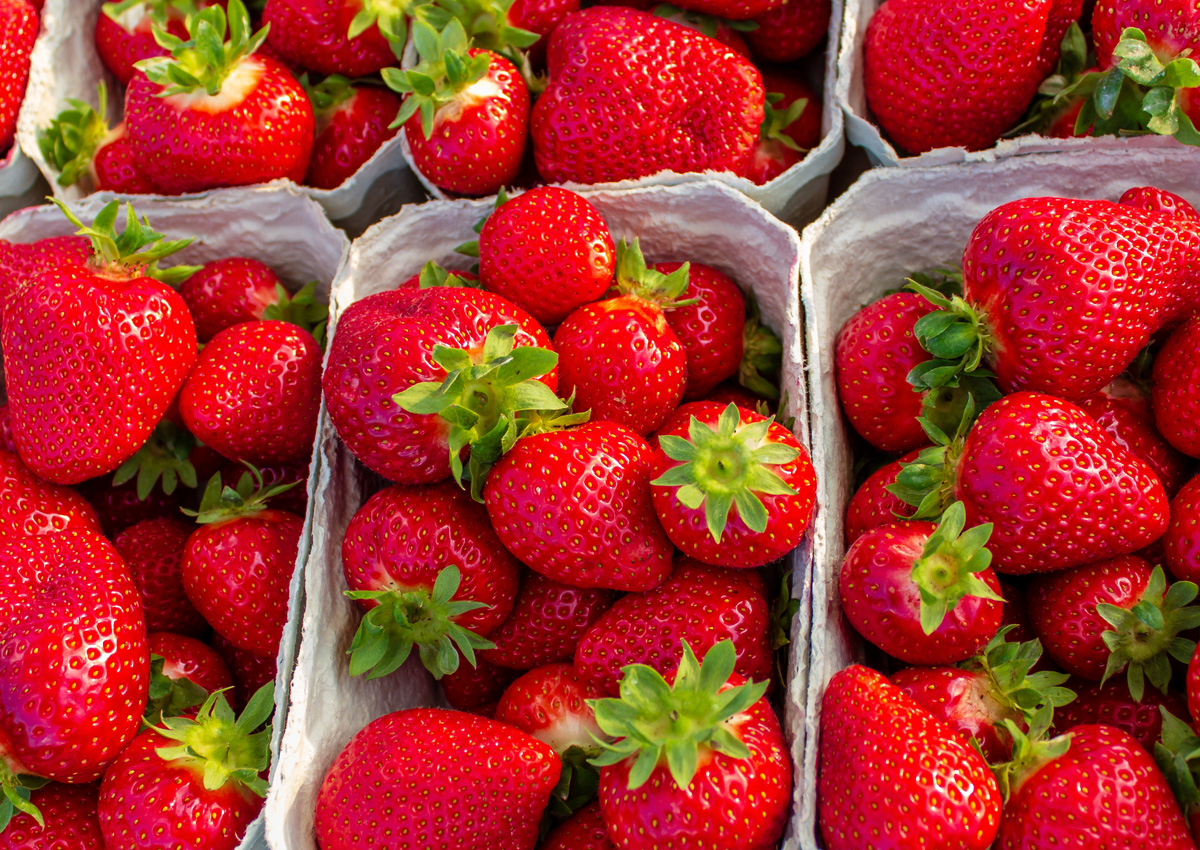
CRISPR-Cas9 Editing Improves Strawberry Fruit Firmness
December 14, 2023| |
Strawberry, known for its flavor and health benefits, is an important agricultural commodity. However, its soft flesh leads to a short shelf life and waste. Research has identified that pectinase enzymes are instrumental in this softening process.
Researchers from Nanjing University used CRISPR-Cas9 technology to grow strawberry plants with the knockedout FaPG1 gene. The genomic sequence of FaPG1 was cross-referenced with the most recent Fragaria × ananassa genomes. Two annotations were located on chromosome 6A, one in the Camarosa genome (FxaC_21g15770) and the other in the Royal Royce genome (Fxa6Ag103973). The FxaC_21g15770 sequence was used to select an sgRNA for editing. The chosen sgRNA was cloned and transferred to the pDe-CAS9 vector. The Transformation was carried out using Agrobacterium tumefaciens on "Chandler" strawberry plants, yielding over 15 resistant lines. Ten of these resistant lines were assessed, and all showed successful FaPG1 editing.
The researchers assessed the post-harvest characteristics of the strawberries and found that the edited fruits had reduced softening rates and increased resistance to fungal rot compared to wild types. The edited fruit also showed enhanced resistance to Botrytis cinerea, a fungal pathogen causing rot in many plant species including strawberries and wine grapes.
For more details, read the open-access paper in Horticulture Research.
| |
You might also like:
- Protein Responsible for Strawberry’s Signature Red Color Identified
- UC Davis Releases Fusarium-resistant Strawberries
- Genomics Help Bring Climate-smart Strawberries in Warmer Regions
Biotech Updates is a weekly newsletter of ISAAA, a not-for-profit organization. It is distributed for free to over 22,000 subscribers worldwide to inform them about the key developments in biosciences, especially in biotechnology. Your support will help us in our mission to feed the world with knowledge. You can help by donating as little as $10.
-
See more articles:
-
Gene Editing Supplement (December 14, 2023)
-
Research and Tools
- Gene Editing of Rapeseed Provides Resistance to Fungal Pathogens
- Gene-edited Grapevine Shows Resistance to Downy Mildew
- CRISPR Decreases Carbohydrate Content in Rice
- Gene Editing Accelerates Early Maturing of Soybeans
- CRISPR-Cas9 Editing Improves Strawberry Fruit Firmness
-
Public Acceptance and Engagement
- EU Agriculture Ministers Fail to Find Compromise on NGTs
-
Read the latest: - Biotech Updates (January 21, 2026)
- Gene Editing Supplement (January 28, 2026)
- Gene Drive Supplement (February 22, 2023)
-
Subscribe to BU: - Share
- Tweet

